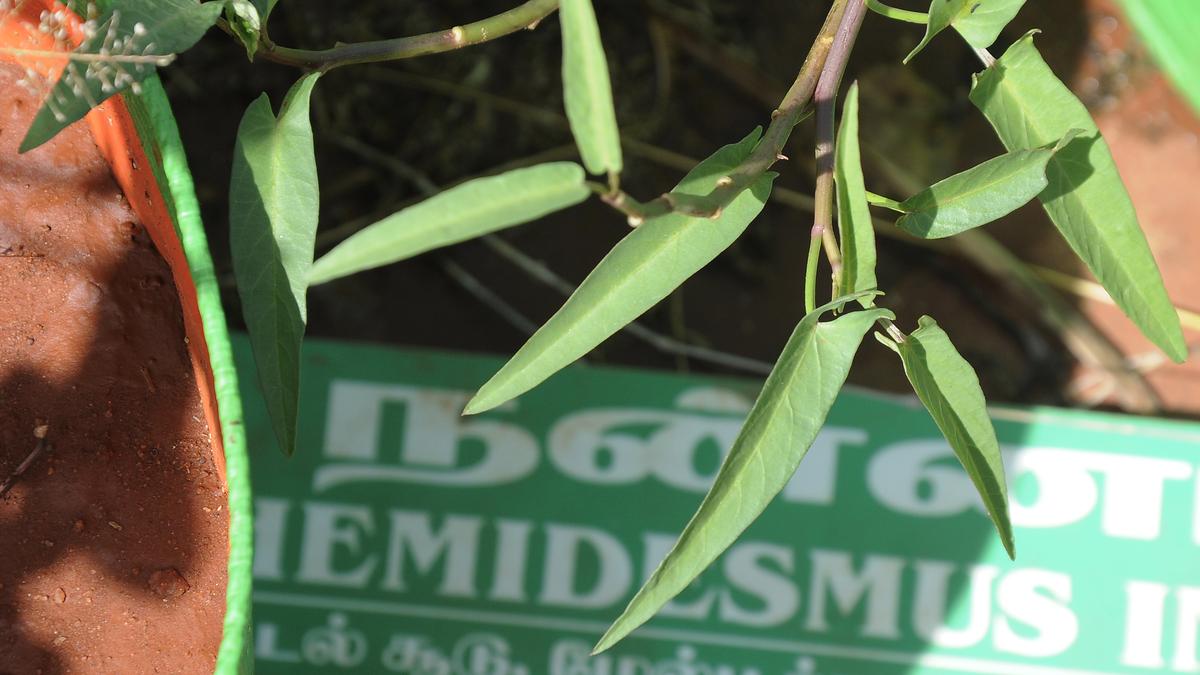By Sangeetha Kandavel
Copyright thehindu

In the lush landscapes of Kanniyakumari district grows Nannari — a herb treasured for generations by local communities, renowned for its cooling properties and revered as a traditional cure for mouth ulcers.
Now, the Tamil Nadu Malaivaazh Makkal Sangam, Kulasekaram, along with the Patent Information Centre of the Tamil Nadu State Council for Science and Technology, has sought a Geographical Indication (GI) tag for Kanniyakumari Nannari, to preserve its identity and promote its unique regional value. Noorul Islam Centre for Higher Education, Kumaracoil, Kanniyakumari was the facilitator for application.
The root of Kanniyakumari Nanari (Indian sarsaparilla) is thicker, more aromatic, and deeper in colour compared to regular Nanari. The roots are sun-dried, cleaned, and stored for medicinal and culinary use. Other key products from Nanari are Nannari Herbal Oil and Nannari Honey. Another well-known by-product of the herb is the refreshing Nannari Sarbath (a traditional Indian beverage).
The primary production areas are concentrated in the taluks of Agastheeswaram, Thovalai, Vilavancode, and Kalkulam. Within these regions, the villages and peri-urban clusters surrounding Nagercoil, Marthandam, Thuckalay, and Boothapandy are particularly recognized for cultivating Nannari and for the traditional preparation of Kanniyakumari Nannari Sarbath. This is prepared by boiling Nannari roots to create a syrup, which is then combined with lemon juice and cold water.
According to details in the GI filing, the Kani tribe, indigenous to the Southern Western Ghats in Kanniyakumari, has a rich tradition of utilizing medicinal plants, including Hemidesmus Indicus. While specific documentation of Nannari cultivation by the Kani tribe is limited, their extensive knowledge of local flora suggests its use in traditional medicine. The roots are used in traditional Siddha and Ayurvedic preparations as a blood purifier, body coolant, and digestive aid. Historical references to the medicinal use of Nanari root are found in Siddha and Ayurveda texts. It has been sold for over 80 years in herbal shops across Nagercoil, Marthandam, and nearby areas.



